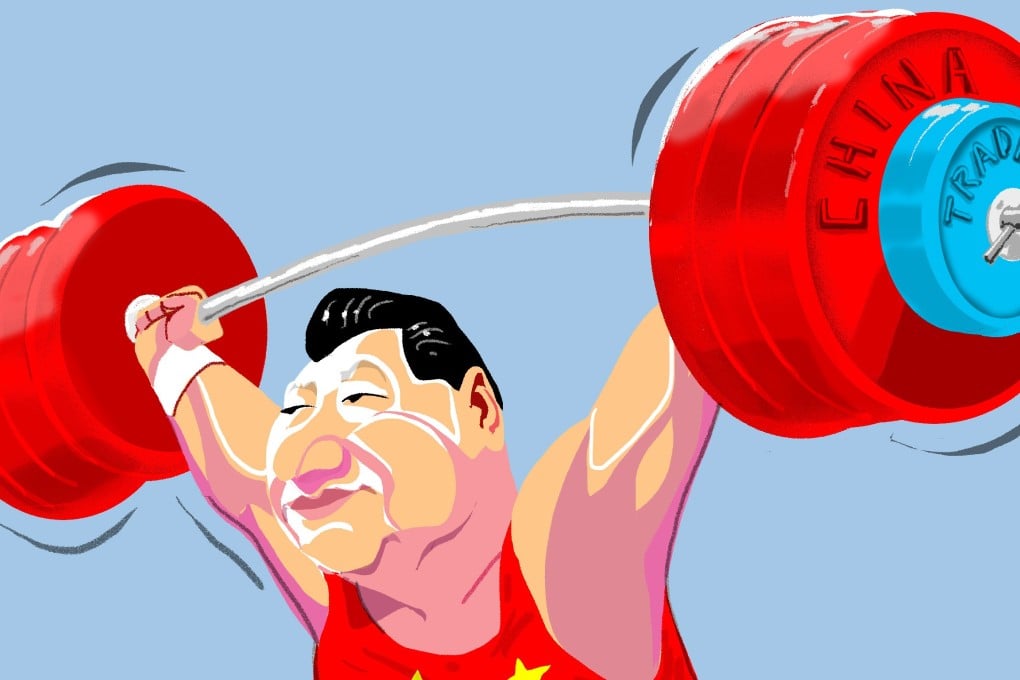Advertisement
Opinion | The trade war won’t shake Xi Jinping’s grip on power in China – for now
- Deng Yuwen says the Chinese leader has been asserting his authority following biting criticism last year of his government’s handling of the trade conflict
- His power is secure, but surely a China that has celebrated 40 years of reform won’t regress to the days when one person could decide the country’s fate
Reading Time:4 minutes
Why you can trust SCMP
0

Developments in China in 2018, especially the abolition of presidential term limits and Beijing’s response to the trade war, indicated that the centralisation of power in Xi Jinping’s hands is complete. In six years of Xi’s rule, this centralisation has been the most prominent feature of Chinese politics. It is clear from 2018 that this consolidation of power has reached the apex of what is permissible under the current conditions. Any further and it would be the Mao Zedong era all over again.
Having said that, it is impossible for a China that has been involved in 40 years of reform and opening up to return to the Mao era or replicate it. And this does offer a ray of optimism about China’s future.
From this point of view, although there were more ups and downs in the political situation than expected, 2018 actually continued in the same vein as the preceding five years and saw a logical evolution of the regime. Entering 2019, it is widely believed that the next two to three years will be the most difficult period for the Chinese economy.
What will these economic difficulties mean for the political situation? Will they intensify the reshuffle at the top of the government, will there be social unrest of some kind, and could it tear a hole in the tight political control? Most importantly, will a subtle change take place in the Chinese Communist Party’s leadership system in 2019?
The leadership system is a crucial issue that shapes other aspects of politics and makes a mark on society. Unpredictable changes have swept Chinese politics since the party’s 18th national congress in 2012, essentially because at the highest level, Beijing has brought back the “one-person leadership system” of the Mao era.
In the Mao years, one person could decide the fate of the party and even the country, but people thought those days were gone forever, with the death of Mao and the end of the Cultural Revolution.
Advertisement
